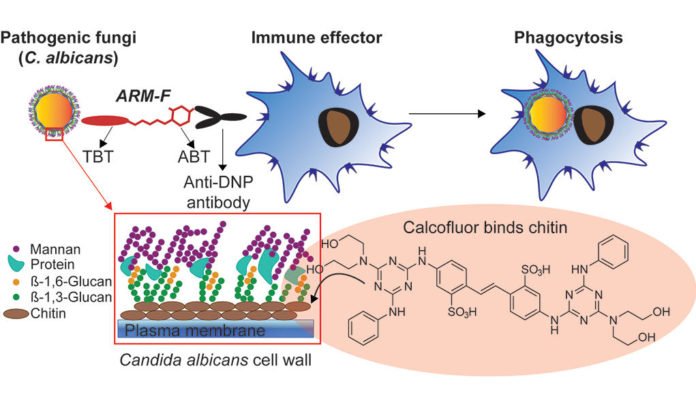Fungal infections are common and occur when an invading fungus takes over an area of the body. When such invading fungus grows over the body, they are sometimes difficult to kill.
Almost 1000 of people get affected by this infection. It mainly involves patients whose immune systems are compromised by organ transplants, cancer treatment, and HIV infections.
So, to attack fungal infections, Yale scientists have developed a new class of small molecules. These new molecules called antibody-recruiting molecules targeting fungi (ARM-Fs) attack the cellular barricades by clinging to the cell wall of harmful fungi. It recruits a swarm of antibodies to join the battle.
Significantly, these molecules have two main features: 1. a target-binding terminus that latches onto the fungal cell wall. 2. an antibody-binding terminus that recognizes and recruits antibodies already present in the human bloodstream.
Senior author David Spiegel said, “Because we’re using the human immune system as the effector’s arm, this strategy is incredibly versatile. It is the first time we’ve shown this strategy can work in treating a fungal disease.”
“The possibility of a molecule like ours synergizing with existing fungal agents has tremendous potential.”
“Over the past decade, we have explored small-molecule approaches to treating a range of diseases, including cancer and HIV. Not only are such molecules effective against drug-resistant strains of diseases. In addition, they may be used in combination with existing treatments.”
Although, these molecules against pathogenic fungi was evaluated through in vitro studies. Scientists noted additional research is necessary before proceeding to human clinical trials.
